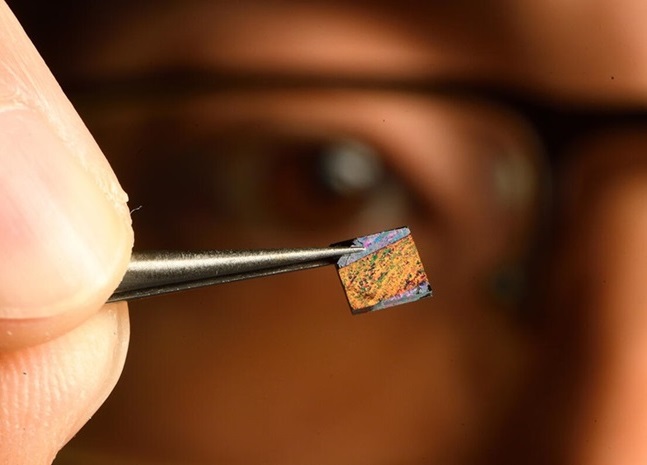Chip-Based Blood Test Accurately Diagnoses Heart Attack in Minutes
Posted on 17 Oct 2024
Heart attacks demand immediate medical attention to improve patient outcomes; however, while early diagnosis is crucial, it can be quite challenging—and nearly impossible outside of a clinical environment. Diagnosing heart attacks remains one of the most difficult tasks due to the wide variability of symptoms and subtle biological signals that can be easily overlooked in the early stages of an attack when medical intervention can be most beneficial. Individuals suspected of experiencing a heart attack typically undergo a series of tests to confirm the diagnosis, usually beginning with electrocardiograms that measure the heart's electrical activity—a procedure that takes about five minutes—and blood tests to identify the indicators of a heart attack, where lab results can take at least an hour and often require repetition. A new blood test has now been developed that can diagnose a heart attack in minutes rather than hours, and it has the potential to serve as a tool for first responders and individuals at home.
Researchers at Johns Hopkins University (Baltimore, MD, USA) have published their proof-of-concept work in Advanced Science, which can be modified to detect infectious diseases and cancer biomarkers. The focus of the research has been on developing diagnostic tools through biophotonics, utilizing laser light to identify biomarkers—bodily responses to various conditions, including diseases. In this instance, they applied the technology to detect the earliest signs in the blood that indicate a heart attack. The stand-alone blood test created by the team yields results in just five to seven minutes. They claim it is also more accurate and cost-effective than current methods.

Although initially designed for rapid diagnostic use in a clinical setting, the test could be adapted into a hand-held device for use by first responders in the field or even for personal use at home. Central to the invention is a small chip featuring a groundbreaking nanostructured surface for blood testing. The chip's "metasurface" amplifies electric and magnetic signals during Raman spectroscopy analysis, enabling heart attack biomarkers to be detected in seconds, even at ultra-low concentrations. This tool is sensitive enough to identify heart attack biomarkers that might not be detected by existing tests or might only be recognized later in the course of an attack. While primarily intended for diagnosing heart attacks, the researchers believe the tool could also be modified to detect cancer and infectious diseases. The team plans to refine the blood test further and undertake larger clinical trials in the future.
"We're talking about speed, we're talking about accuracy, and we're talking of the ability to perform measurements outside of a hospital," said Ishan Barman, Professor, Department of Mechanical Engineering. "In the future, we hope this could be made into a hand-held instrument like a Star Trek tricorder, where you have a drop of blood and then, voilà, in a few seconds you have detection."














